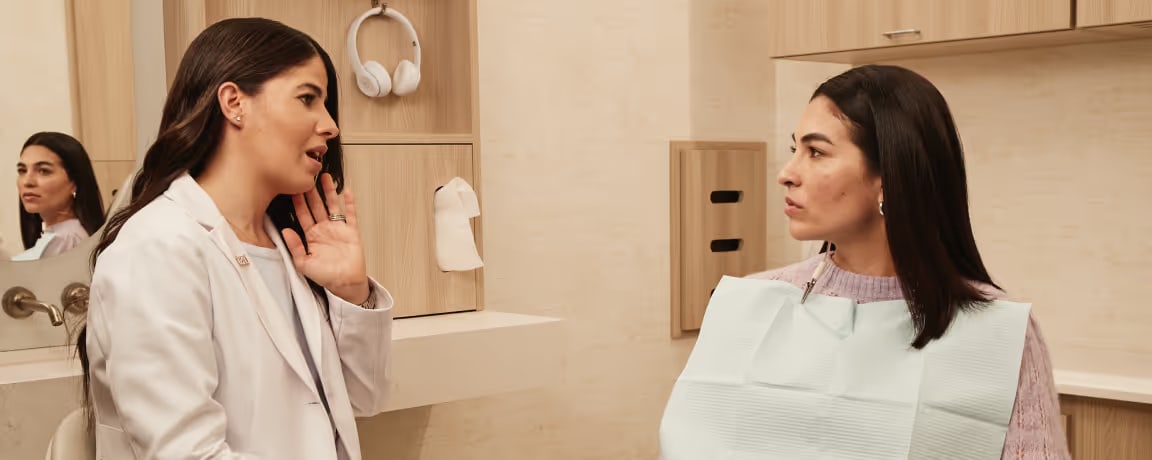In our experience, there are two kinds of dental patients: 1. those who are afraid of discomfort and want to avoid it at all costs; 2. those who want a bit of soreness or tooth sensitivity to “prove” that they had a thorough cleaning.
If one of these sounds like you, we want to talk to you about what level of comfort it’s realistic to expect during a dental exam (more than you think, but not total bliss), and whether discomfort and thoroughness really do go together (actually, no!).
Soreness
If you feel discomfort after your dental cleaning, and that’s worrying...
We do everything possible to make your dental exam comfortable, from bringing your anxiety level down with a soothing space and distracting TV shows, to numbing sensitive gums with a topical anesthetic, to using gentler, state-of-the-art tools (more below). But there’s no way to 100% guarantee that you won’t feel a thing.
Of course, feeling some soreness is no reason to be worried about your oral health. While gum disease, gingivitis, and periodontitis can lead to increased discomfort during dental procedures, one of the most common reasons people experience sensitivity at their dental checkups has nothing to do with poor oral hygiene; in fact, it’s quite the opposite. The reason? Over-brushing at home.
“A lot of our patients have very healthy teeth,” says Dr. Schlenoff, Tend's Head of Clinical Development, “but may be very aggressive when brushing.” Overly-vigorous brushing at the gumline can lead to thinner gum tissue and “a tiny bit of gum recession.” This can leave some tooth exposed that’s not protected by enamel. And without that protective layer, your tooth will naturally be more sensitive during or after exams.
The good news? This type of discomfort “is always transient and completely normal,” says Dr. Schlenoff. If you’re feeling any twinges, just raise your hand and let your dental hygienist know.
In the meantime, a few tweaks to your at-home dental care routine can help prevent further recession and minimize sensitivity. Switching to a soft-bristled toothbrush will help protect your gums, while using a fluoride-based, desensitizing toothpaste should help with discomfort. And of course, regular flossing and rinsing with an antiseptic mouthwash will keep your teeth healthy between cleanings.

No Soreness
If you’re not sore after your dental cleaning, and that seems weird…
If you’ve been to other dentists, you may have internalized the idea that exams = pain. You may have even convinced yourself that pain is the only way to know you’ve had a deep cleaning. But it turns out that when you take the latest teeth cleaning technology and put it in the hands of skilled staff whose top priority is your comfort, it makes for a much more soothing experience.
“We use ultrasonic scalers,” explains Dr. Schlenoff, referring to the instruments Tend Dental hygienists use during the cleaning process to remove plaque and tartar from teeth. “Ultrasonic” means the scaler uses soundwaves to blast buildup off your teeth. And since ultrasonic scalers vibrate faster than traditional scalers, they’re more precise and less painful.
This means that you’ll likely be more comfortable during your cleanings than you were at your last dentist’s office. And that your teeth will also be just as clean, if not cleaner. So if you think you’re supposed to feel sore afterward, you may be sorely disappointed. (Sorry, we had to!)
A Dental Exam That’s So Much More than Routine
Whichever type of patient you are - afraid of discomfort, expecting it and even kind of wanting it - we’re here for you. Book a checkup at your nearest Tend studio, and we’ll make your cleaning as soothing as it is thorough.